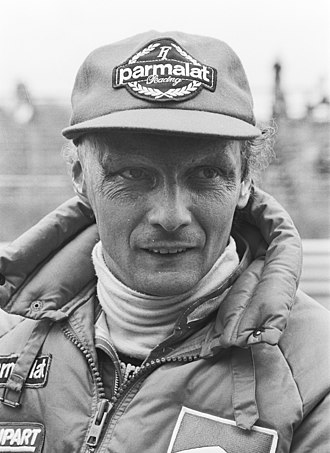Analogies are often made between sport and business. It can be argued that successful sports people have much in common with leading professionals or captains of industry. Hard work, motivation, the ability evaluate successes and failures, coupled with a certain single mindedness, are traits found in commerce as well as within top athletes. Being an avid fan of Formula One, one of my own heroes is Niki Lauda, the three-time world champion who died on 20 May 2019. For me, he represented not just intelligence, skill and a devotion to his craft, but also a relentless determination and resilience that is crucial to anyone looking to succeed whether in sport, business or in any walk of life.
Niki Lauda passed away on Monday aged 70. Many will know him as the steely Austrian rival of flamboyant British driver, James Hunt, in the 2013 film ‘Rush’. The movie brought their fierce battle for the 1976 F1 Championship to the silver screen and centred around their intense and, at times, bitter feud as they spurred each other on in a dangerous battle of wits, endurance and speed. Also highlighted in the picture was one of the most heroic sporting comebacks in history: Niki Lauda’s almost superhuman recovery from his harrowing and near fatal crash at the Nürburgring in Germany on 1 August 1976.
Niki Lauda had been leading the 1976 season, but on the second lap of the German Grand Prix, just before the Bergwerk curve, his Ferrari snapped to the right and crashed through the fencing into an earth back. Lauda’s car exploded into a fireball and careered back onto the tarmac, where it was struck by two more drivers. Lauda was rescued from the inferno, but only after suffering horrific third degree burns and inhaling harmful toxic fumes.
The nightmarish horror of the accident must be seen to be believed and yet within 6 weeks of the catastrophe, he was back in the cockpit at the Italian Grand Prix at Monza. Such was the severity of Lauda’s injuries, his last rites were read to him on his hospital bed. This only makes one realise just how stunning his recovery really was. In the end, Lauda lost the 1976 Championship by just one point, but arguably gained the respect of everyone in the racing world.
How does one come back from such life-threatening injuries? What is behind that level of indomitable resilience? Many, including the doctors at the hospital where Lauda was treated put his recovery down the pure force of will. Even so, whilst burns and broken bones may be repaired, the mental trauma can be just as pronounced and take longer to heal. Lauda himself spoke of the fear he felt when climbing back behind the wheel 40 days after the crash, but this is not something he openly admitted until much later.
It is difficult to compare the knockbacks one may receive in business to the horrendous scars, both physical and psychological that Lauda suffered. That said, I have always drawn inspiration from comeback stories especially those set against impossible odds.
If Lauda had never suited up in racing overalls again, he would still be one of the all-time greats of the sport. As it was, he went on to win two more titles before retiring in 1985 after which time he occupied management and consultancy roles with various F1 teams, before joining Mercedes in 2012, where he was instrumental in signing Lewis Hamilton.
Outside of F1, Lauda was also a successful businessman, establishing his own airline business and selling it to Austrian Airlines in 1999.
Niki Lauda was a champion in every sense of the word and great example of how, motivation, resilience and will power can prevail even in the most difficult of circumstances. The F1 racing paddock has not just lost a true champion and idol of the sport, but the embodiment of sheer grit, determination and a will to never give up.

